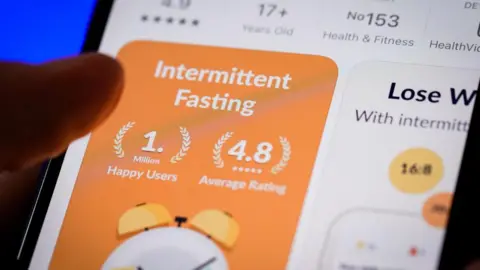Medical influencers are exploiting vulnerable women suffering from polycystic ovary syndrome (PCOS) by promoting unproven treatments. Sophie, 12 years into her struggles with painful periods, weight gain, and fatigue, found herself drawn to Kourtney Simmang on Instagram, who claimed to cure the "root cause" of PCOS with costly tests, supplements, and coaching. Despite spending $3,600, Sophie’s symptoms worsened.
These influencers, many posing as health experts, often promote false claims about PCOS, such as dietary supplements being a cure or that the keto diet can significantly relieve symptoms—where evidence shows otherwise. The World Health Organization notes that a staggering 70% of women with PCOS remain undiagnosed, and misinformation can deter them from seeking professional help. Dr. Jen Gunter emphasizes the risks associated with embracing inaccurate advice, warning that these practices might lead to eating disorders.
Tallene Hacatoryan, another popular influencer with over two million followers, offers supplements and diet regimens while discouraging medications like birth control, which are often beneficial for women with PCOS. Many women, including Amy from Northern Ireland, have felt invalidated and insecure, exacerbating their struggles with self-image and body acceptance.
Medlyn, a medical student in Nigeria, confronts the stigma surrounding PCOS and encourages others to seek legitimate medical advice. Experts argue that appropriate medical treatment allows women with PCOS to lead healthy lives and even conceive. Gunter urges those struggling with their condition to consult trusted medical professionals for adequate management.
These influencers, many posing as health experts, often promote false claims about PCOS, such as dietary supplements being a cure or that the keto diet can significantly relieve symptoms—where evidence shows otherwise. The World Health Organization notes that a staggering 70% of women with PCOS remain undiagnosed, and misinformation can deter them from seeking professional help. Dr. Jen Gunter emphasizes the risks associated with embracing inaccurate advice, warning that these practices might lead to eating disorders.
Tallene Hacatoryan, another popular influencer with over two million followers, offers supplements and diet regimens while discouraging medications like birth control, which are often beneficial for women with PCOS. Many women, including Amy from Northern Ireland, have felt invalidated and insecure, exacerbating their struggles with self-image and body acceptance.
Medlyn, a medical student in Nigeria, confronts the stigma surrounding PCOS and encourages others to seek legitimate medical advice. Experts argue that appropriate medical treatment allows women with PCOS to lead healthy lives and even conceive. Gunter urges those struggling with their condition to consult trusted medical professionals for adequate management.





















